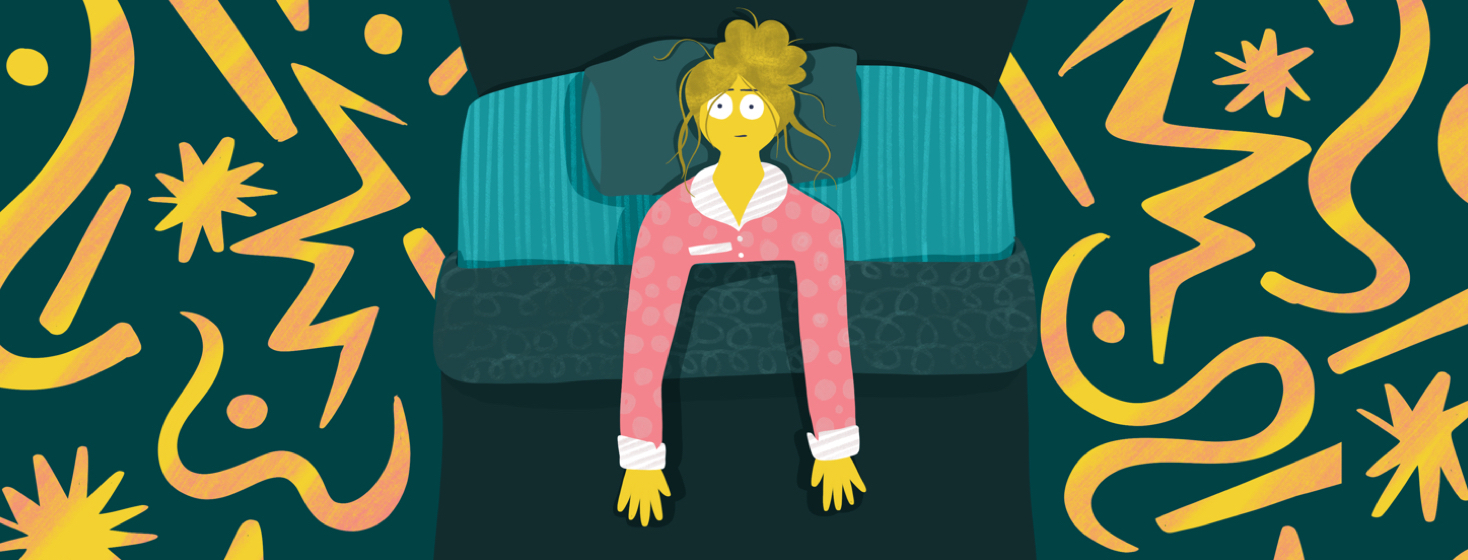Wide Awake When Your Head Hits the Pillow?
Have you ever been so sleepy you thought you might not make it to the bedroom, only to find that you become utterly awake with a buzzing mind the minute your head hits the pillow?
It used to happen to me every night. It was incredibly frustrating!
It's a pervasive experience for those with insomnia. But why does this happen? This phenomenon is called conditioned arousal.
Mind and body on alert
Conditional arousal is a state where our mind and body are on alert. If we think something is worrisome, needs watching, or is an outright threat to us, our arousal system kicks in like a radar dish, scanning for problems.
It is a useful state to be in if you are trying to avoid being hit by a car or if a bear is chasing you. Our big human brains can sometimes think things are more problematic than they are in reality, and our thoughts can run away with us. This can make us apprehensive and anxious when it's not helpful.
If you then add in worrying about not sleeping, our arousal radar gets pointed at the sleep issue – and makes it even harder to sleep. These are powerful "protective" emotions in us for our evolutionary survival, but in this circumstance, they are misplaced, and instead of protecting us, they cause us more problems.
The makings of chronic insomnia
This arousal is thought to be part of what turns short-term sleeplessness into chronic insomnia. Ironically, it is also what helps people with insomnia function on so little sleep, as it is present in both the daytime and the nighttime.1
When we stay in bed, tossing and turning with anxiety and worrying about what could happen the next day, our bed becomes less of a place for sleeping over time. It becomes a place of frustration, worry, and anxiety, creating a vicious cycle.
The vicious cycle grows
This "arousal" gets associated or "conditioned" with the bed. During the day, we are busy with other things occupying our minds, so the arousal isn't as noticeable. Then, when the day is done and we go to bed, our mind and body say, "This is the place we turn on our threat radar, crank up the adrenalin, and become more sensitive to noise." As a survival mechanism, this keeps us awake, and a cycle grows from the dynamic of worrying about sleep and not sleeping.
How stimulus control can help
So what can be done about it? Cognitive behavioral therapy for insomnia (CBTi) is a highly effective treatment for people with insomnia. CBTi uses cognitive approaches to work through the unhelpful and incorrect thinking that can trigger this "radar," while at the same time using techniques called stimulus control.2
The idea behind stimulus control is to break the link between anxious feelings and the bed and reinforce the bed's association with sleepy feelings. This is done by only being in bed while actually sleeping and getting out of bed when we find ourselves lying there trying to sleep.
Have you ever had the experience of waking up when your head hits the pillow? What did you do about it? We'd love to know what helped you!

Join the conversation